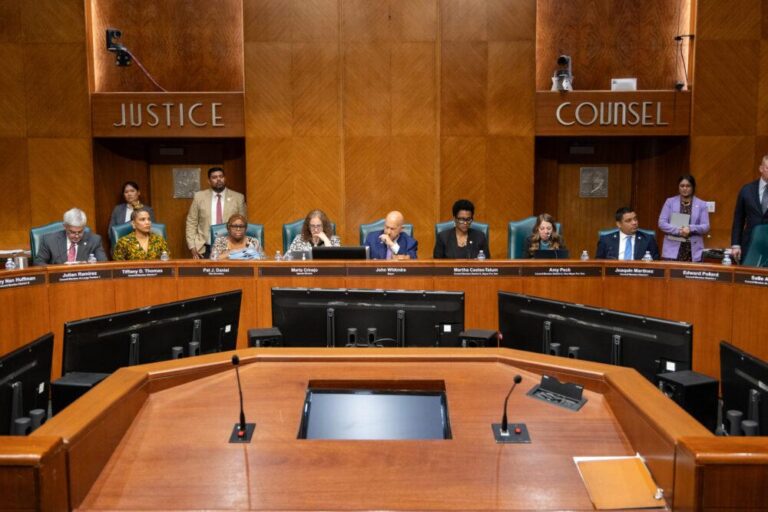Houston Reassesses Minority-Owned Business Initiative Amid Legal Disputes
Houston’s Minority Business Program Under Legal Review
The City of Houston is undertaking a comprehensive evaluation of its Minority-Owned Business Program in response to ongoing legal challenges questioning its adherence to state and federal laws. City leaders reaffirm their dedication to cultivating a diverse and inclusive economic landscape while ensuring the program’s legal robustness. To navigate these complexities, a multidisciplinary task force—comprising legal advisors, community representatives, and small business advocates—has been convened to explore potential revisions to eligibility standards, certification protocols, and compliance oversight.
Among the primary areas under consideration are:
- Raising the minimum ownership percentage required to qualify as a minority-owned business
- Implementing more stringent documentation and verification procedures
- Expanding outreach efforts to underserved populations without compromising legal safeguards
Officials have also shared initial findings from a comparative study of similar programs in other major cities, revealing a national trend toward enhanced regulatory scrutiny paired with strategic support measures.
| Program Element | Existing Policy | Suggested Revision |
|---|---|---|
| Minority Ownership Threshold | 51% | Minimum 60% |
| Certification Renewal Cycle | Every 3 years | Annual renewal with audit |
| Outreach Frequency | Quarterly workshops | Monthly sessions plus online webinars |
Legal Dispute’s Effects on Minority Entrepreneurs and Business Engagement
The lawsuit challenging Houston’s minority business initiative has generated apprehension among local entrepreneurs who depend on these programs for growth and access to municipal contracts. Many minority business owners worry that forthcoming policy adjustments could limit opportunities that have historically helped bridge economic disparities. Economic experts caution that tightening eligibility rules may disproportionately hinder small enterprises in marginalized communities, potentially stalling job creation and economic empowerment.
Community advocates urge the city to maintain transparency and foster inclusive conversations as reforms are considered. They stress the necessity of balancing legal compliance with substantive support for minority business participation. Below is an overview of key stakeholder viewpoints regarding the lawsuit’s impact:
| Stakeholder Group | Primary Concern | Recommended Action |
|---|---|---|
| Minority Business Owners | Potential loss of contract opportunities and funding | Preserve broad eligibility criteria |
| City Administrators | Ensuring legal compliance and program credibility | Revise policies informed by legal review |
| Economic Development Advocates | Risk of economic decline in minority-concentrated neighborhoods | Enhance outreach and financial literacy programs |
- Possible delays in awarding contracts pending legal outcomes
- Heightened examination of certification and eligibility processes
- Calls for supplementary support systems beyond the existing framework
Enhancing Equity and Compliance: Proposed Policy Revisions
In light of the legal scrutiny, Houston is proposing a suite of policy reforms designed to bolster fairness and transparency within its minority-owned business program. These initiatives aim to tighten ownership verification, increase audit frequency, and deepen engagement with stakeholders to ensure that program benefits are directed to genuinely qualified minority entrepreneurs.
Key Features of the Proposed Changes Include:
- More rigorous documentation standards to confirm minority status and business ownership authenticity.
- Annual compliance assessments to maintain ongoing eligibility verification.
- Broadened outreach campaigns leveraging community partnerships and digital platforms to reach diverse populations.
- Transparent reporting protocols to enhance accountability and public confidence.
| Policy Component | Current Approach | Proposed Update |
|---|---|---|
| Verification Frequency | Every two years | Annual with enhanced documentation |
| Transparency Measures | Quarterly council reports | Monthly public disclosures |
| Outreach Methods | Workshops only | Community collaborations and online campaigns |
Building Trust Through Transparency and Community Collaboration
Experts underscore that transparent communication is vital for Houston as it revises its minority business program. Openly sharing program objectives, eligibility requirements, and decision-making processes can rebuild public trust and guarantee equitable access for minority entrepreneurs. Transparency also serves as a safeguard against future legal disputes by establishing clear accountability.
Equally important is sustained community involvement. Specialists recommend that the city foster continuous dialogue with business owners and advocacy groups through public forums, surveys, and advisory panels. This participatory approach allows policymakers to grasp real-world challenges and tailor initiatives accordingly, promoting inclusivity and sustainable success.
- Consistent public updates on program evaluations and changes
- Inclusive workshops designed to solicit feedback from minority entrepreneurs
- Collaborative goal-setting with community stakeholders
- Transparent reporting on program performance and financials
Looking Ahead: The Future of Houston’s Minority Business Support
As Houston confronts the legal and operational challenges surrounding its minority-owned business program, the resolution of the lawsuit will significantly influence the city’s approach to economic inclusion. Stakeholders across the spectrum remain vigilant, anticipating how policy adjustments might affect the city’s dedication to fostering equitable opportunities for minority entrepreneurs. Houston Public Media will continue to provide timely updates on this evolving issue, tracking the city’s efforts to balance legal compliance with economic empowerment.




